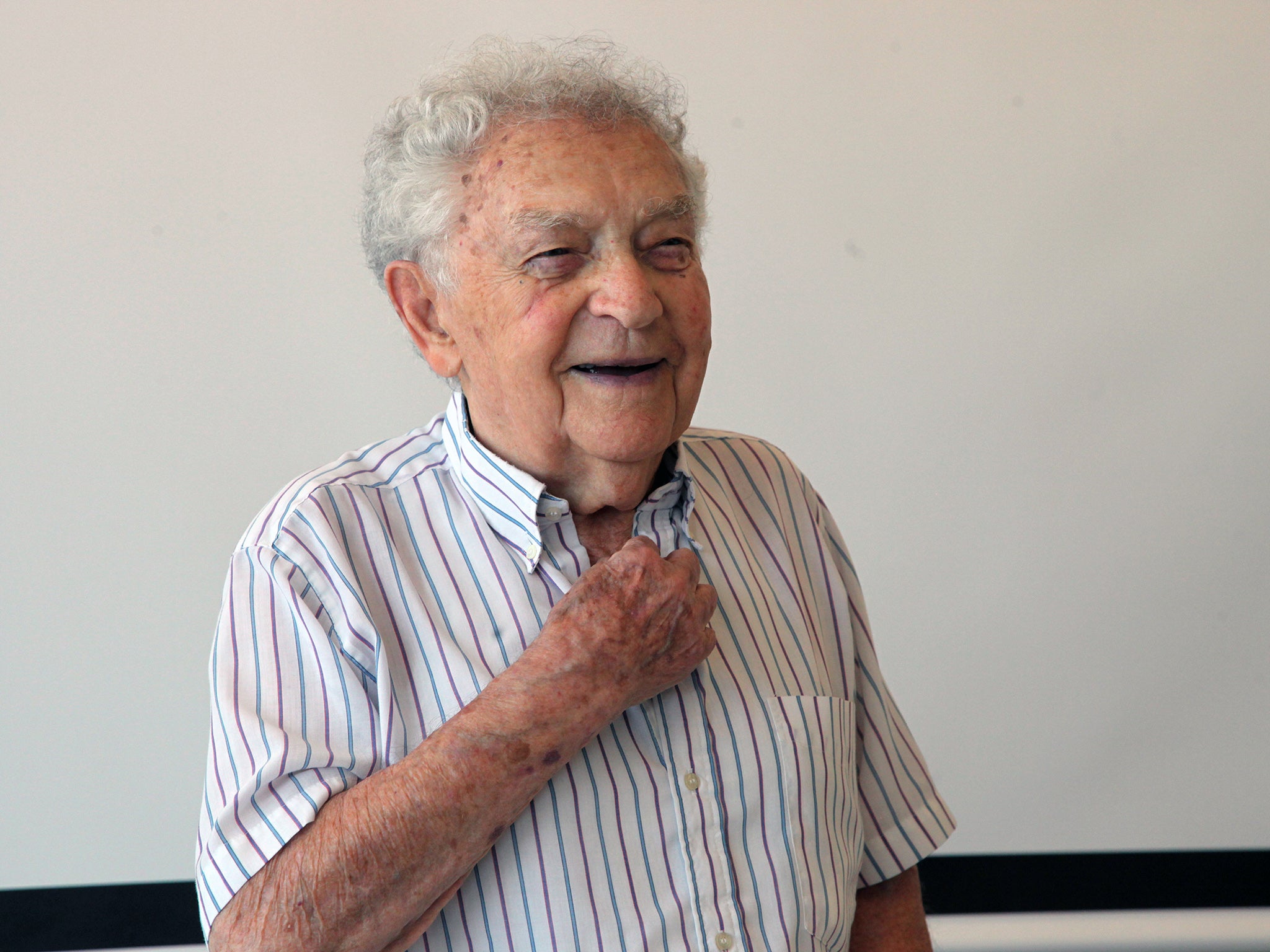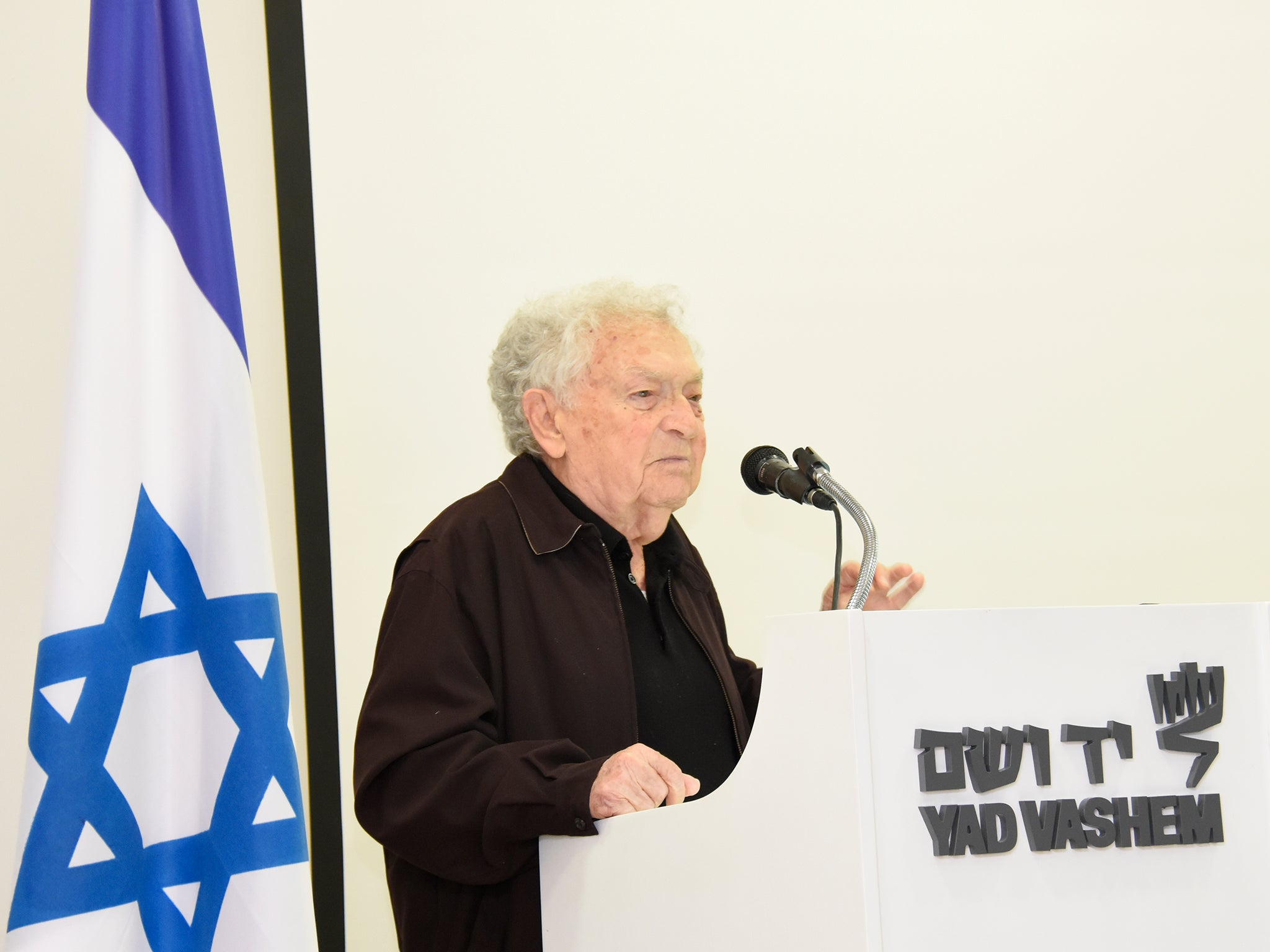Yitzhak Arad: Holocaust survivor and Yad Vashem chair
One of a vanishing generation, the historian, partisan and soldier made it his life’s work to ensure nobody could forget the atrocities committed during the Second World War

Dr Yitzhak Arad was the resistance fighter, historian and administrator who survived the Holocaust, fought the Nazi occupation of his home country and went on to take part in the founding of modern-day Israel.
Arad, who has died aged 94, led Yad Vashem – the World Holocaust Remembrance Centre – as its chairman for more than two decades. The acting chairman of Yad Vashem, Ronen Plot, said in tribute: “Arad belongs to a vanishing generation, a generation of survivors, partisans, IDF fighters, memorial fighters. Every farewell to a Holocaust survivor is a reminder that now the work of remembrance rests on our shoulders even more.”
Yitzhak Arad was born Yitzhak Rudnicki in Swieciany, Poland (now Svencionys, Lithuania) in 1926 and grew up in Warsaw. His family was living there at the outbreak of the Second World War. After three months of German occupation, he and his sister left the city to return to Swieciany. His parents and 30 family members were subsequently murdered in the Warsaw Ghetto.
Aged just 15, Arad joined up with Soviet partisan resistance groups in the forests, fighting Germans and their collaborators in the Narocz Forest of Belarus and in eastern Lithuania. Adopting the Russian nickname “Tolka”, he remained with the Soviet partisans until the end of the war.
In a 1993 interview with Harry J Cargas, Arad was asked about the options for the Jewish population at the time. “Very few had a chance to reach the forest. Fighting gave very little chance for surviving”, he replied, “And the main aim of the Jews at that time, I would say, was to survive. The Jewish victory would be in survival. Some might try to prolong their existence by hiding, others by escaping to the forest. Some chose to remain in the ghetto, to try to make it more productive with the hope that there would be a chance to survive that way. All the ways were right ways.”
Following the end of the war, he was one of the groups of Ma’apilim – illegal immigrants to Mandatory Palestine – who escaped from Europe on the Hannah Szenes, a vessel operated by the organisation Ha'Mossad Le'Aliya Bet. Arriving on 25 December 1945, the ship ran aground and its passengers were rescued by the townspeople of Nahariya.

Arad enlisted with the Palmach, an elite paramilitary group that was later absorbed into the Israeli Defence Force (IDF). Upon his retirement from the IDF in 1972 he had attained the rank of brigadier general.
Arad was invited to join Yad Vashem as its chairman that year and led the organisation until 1993. “I built a physical site for visitors, which tells and presents the history of the Holocaust,” he later recalled, “I expanded the education and research of the subject and laid the foundations for making the place a world centre for commemorating the memory of the Holocaust and its heritage.”
During his time as chairman, he also devoted himself to his own research into the history of the Holocaust, writing Ghetto in Flames: The Struggle and Destruction of the Jews in Vilna in the Holocaust (1980) and Treblinka, Destruction and Revolt (1983, in Hebrew). In The Operation Reinhard Death Camps: Belzec, Sobibor, Treblinka (1987) Arad provides a forensically detailed examination of the operation of these three extermination camps which killed more than 1.5 million Jews and Roma.
By now retired from Yad Vashem, Arad had continued his research and writing, publishing The Holocaust in the Soviet Union (2009) and In the Shadow of the Red Banner (2010), which documented the role of Soviet Jews in opposing Nazi Germany.
During October last year, Arad joined a new resistance movement, as one of the many members of the “1948 generation” taking part in protests across the country against Israeli prime minister Benjamin Netanyahu. Arad said at the time: “We fought for this state. We shed blood for this state so it could remain Jewish and democratic – and now all that’s in jeopardy ... because the man running this country has failed to address the coronavirus pandemic properly, because he’s destroying our economy and our justice system, and because he’s surrounded himself with yes-men who are afraid to make their voices heard.”
Arad died in Tel Aviv. He had been married to Michal, who died in 2015, and is survived by their three children.
Yitzhak Arad, soldier, historian and administrator, born 11 November 1926, died 6 May 2021

